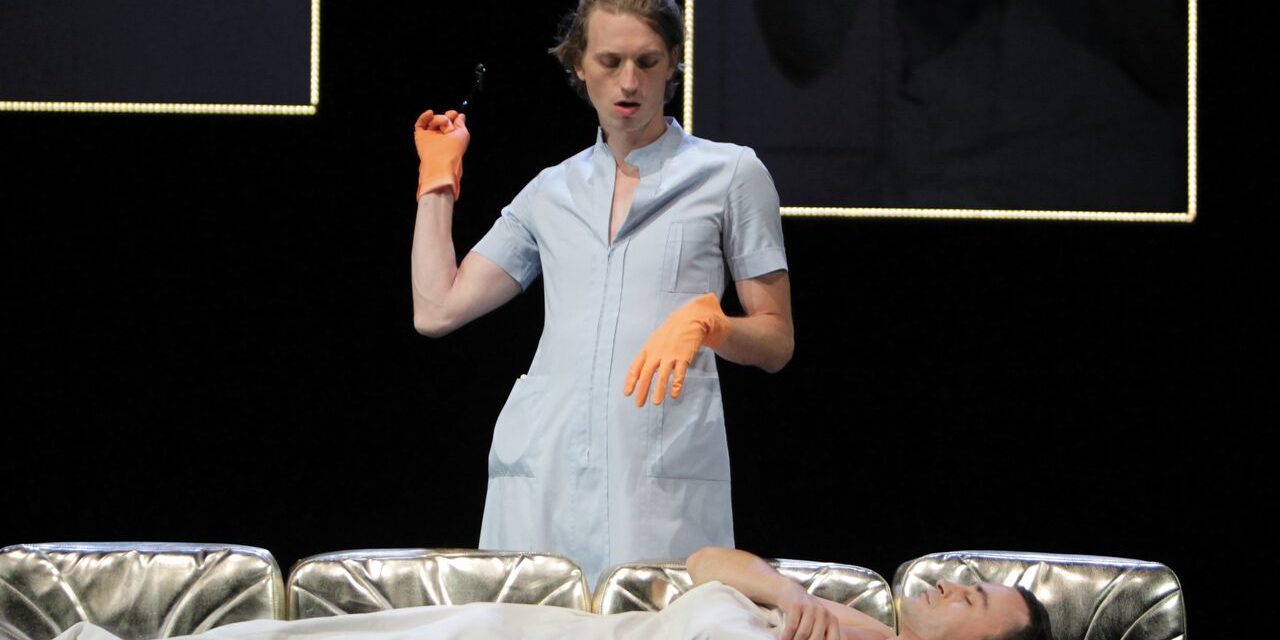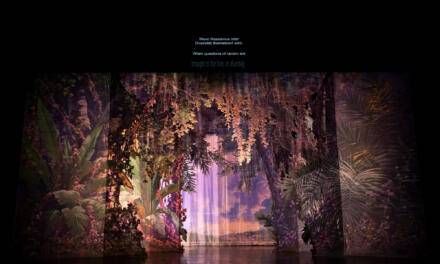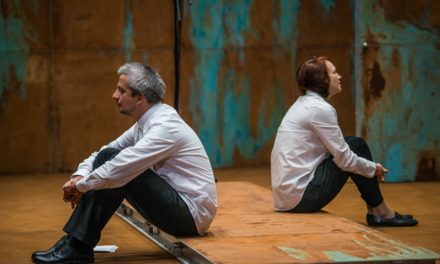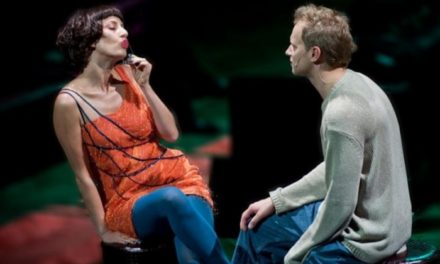A first glance at the website for “The Art of Ageing” theatre project may lead you to conclude that this is another alarmist “gray tsunami” reaction to the aging of the world’s population. The bullet points on the home page include “Shrinking young generation,” “An additional 24 million people will live in Europe by 2040,” and “By 2060, 65-year and older people will make up 42% of the entire EU population,” followed by “What do we do?” However, rather than taking the common ageist approach, these theatre practitioners responded to issues of aging with innovative, collaborative work. Although it was completed two years ago, “The Art of Aging” deserves greater attention outside the four countries that were involved. Initiated by the European Theatre Convention (ETC) in cooperation with eight European public theatres, the project commissioned four plays addressing aspects of aging, which resulted in five international, multilingual productions.
The project “aims at bringing the burning issue of our aging societies and the resulting challenges via innovative art creation and theatre co-production to international audiences. By creating an acute visibility and awareness The Art of Ageing develops new perspectives and approaches to position artistic research in the current international, multidisciplinary scientific and socio-political discourse between Western- and Eastern European artists, scientists and audiences on demographic changes,” according to the official description. The public theatres participating include Staatstheater Braunschweig, Staatstheater Karlsruhe, Theater und Orchester Heidelberg, and Deutsches Theater Berlin, all in Germany; Teatrul National Craiova, and Teatrul National Timisoara, both in Romania; Gavella City Theatre Zagreb, Croatia; and Slovak National Theatre Bratislava, Slovakia.
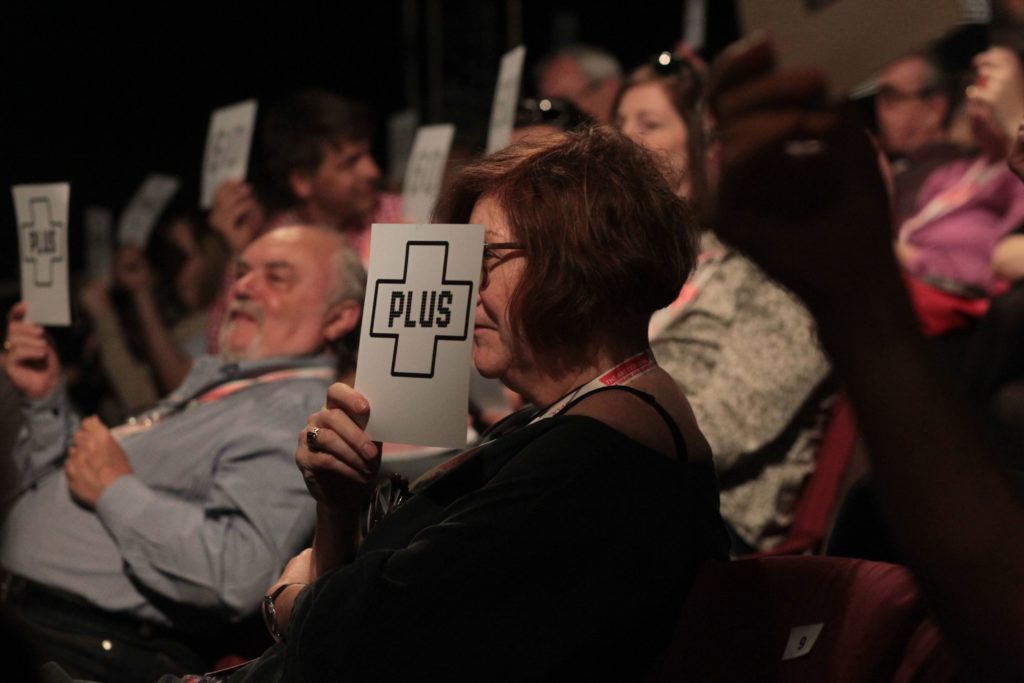
Photo Credit: Adrian Piclisan
The five new productions were shared and toured between the participating theatres and showcased during the Art of Ageing–1st European Theatre and Science Festival in 2015 at the Teatrul National Timisoara in Romania, part of a scientific symposium that brought together performers with political and economic stakeholders.
While not all of the scripts have been fully translated into English, The Clock Is Ticking is particularly intriguing among the works available to peruse. This coproduction involved Staatstheater Karlsruhe and Timisoara National Theatre. Peca Stefan’s script poses three questions, and the audience determines the course of the play by voting on the answers. One scene involves two potential children who must be convinced to be born; promises of a good life are solicited from the audience and the script contains options based on the children’s decision. Other scenes deal with such issues as intergenerational conflict, assisted death, and contrasts between chronological age and apparent age. In German, Romanian, and English, the play addresses concerns about aging and the individual experience of time, played against a 60-minute limit on running time, so that each performance races the clock. The website claims that “everyone in the room is given the chance to age better over the course of 60 minutes.”
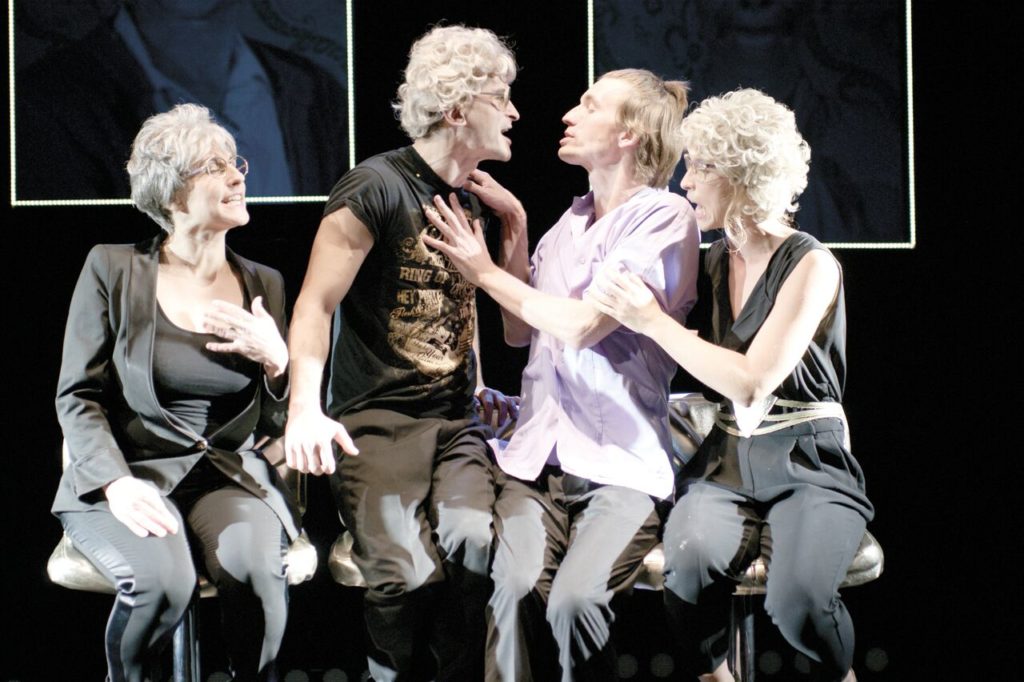
The Clock Is Ticking Photo Credit: Felix Grünschloß
Born in 1982 and currently based in Romania, Stefan studied dramatic writing at New York University 15 years ago, then took part in the Royal Court International Residency. He was CEC ArtsLink Playwright in Residence at the Long Wharf Theatre in New Haven (2007, 2008). His work has been performed in numerous European nations as well as the United States. Incorporating a performative view of aging, his website statement on the genesis of the play is a detailed reflection on the concerns of aging that the project addresses. It is worth quoting at length:
Beyond data, I’ve always been fascinated with how people perceive their own age, remember previous ages and project ages to come. Aging is a process that never stops, and it’s extremely interesting to compare how people age in two EU countries which are at the opposite ends of the spectrum: the economic champion Germany, one of the fundamental European cultures, and Romania, a country still recovering from its communist past, where traces of the Middle Ages can still be found in the daily life of its rural communities. At the end of the research period there was enough material for five plays, not just one. On top of it all, there was my everlasting fascination with time and my own philosophy about how I am getting older. But it wasn’t just me. The subjectivity of aging and its perception remained at the core of all the findings. It seemed extremely relevant and exciting to me to create a concept that would address one question: how do we decide to get older together? What if we had only a concrete performance time, and a social situation (such as a theatrical convention) that urges us to make a decision? Quite literally, the clock would tick. What happens when we know we only have 60 minutes? How do we decide to spend that time? What if we are aware we’re getting older with each second? And what if we know the performance is never the same, just as our own lives are never the same? What if we would only get to experience this night with the others who have come here, knowing that no other audience will experience exactly the same thing? What if the hour we get to experience is the consequence of another audience being here before us (an inheritance)? And what do we leave to the next audience? In other words, what is the responsibility of our passing, and being in a moment–even as an audience at a theatrical event?
Such concerns are reflected in the opening of the play, during which actors address the audience members directly, take down all their ages, and announce a collective age, such as “Tonight, we are 1276 years old.”
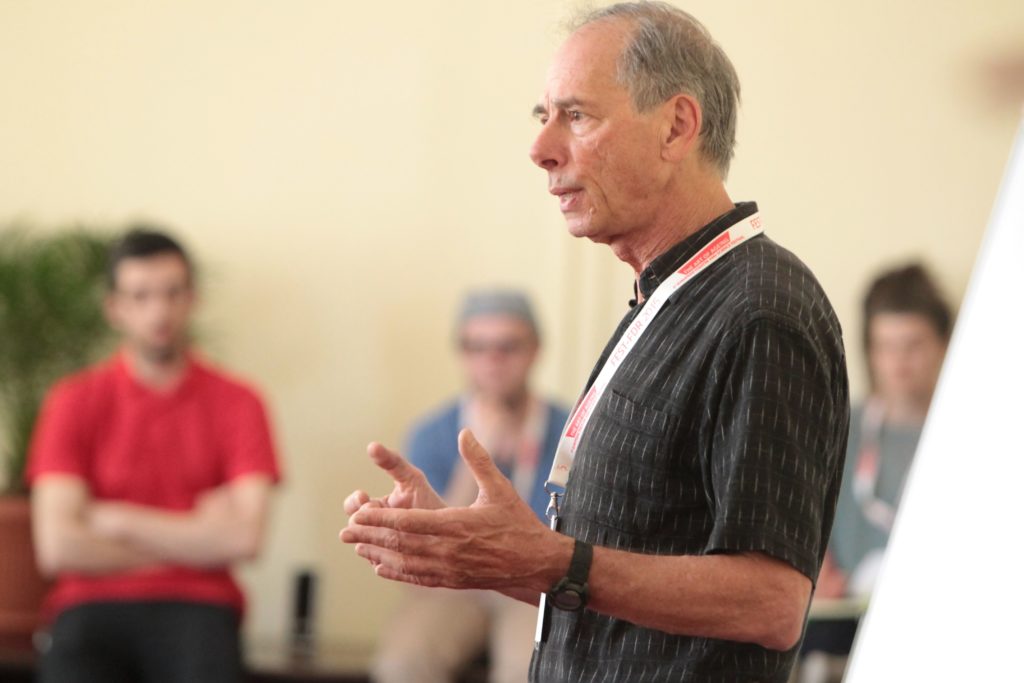
Photo Credit: Adrian Piclisan
The second play, Fen Fires is by a German-Georgian novelist, playwright and theatre director Nino Haratischwili, who was born in 1983 in Tbilisi, Georgia, and now is based in Hamburg. She also is known as the author of the award-winning 2014 novel The Eighth Life (For Brilka), which has been widely translated. The multilingual play is designed for two German and two Slovak actors: one central character, Lara, is from the West and was a successful judge but is now bedridden, and the other is her Eastern European nurse, Natalia, a dissident’s daughter. A co-production by Deutsches Theater Berlin of Germany and Slovenske Narodne Divadlo, Bratislava Slovakia, the play chronicles how two very different personalities negotiate their daily interactions while facing their own past. Lara and Natalia misperceive each other and conceal aspects of themselves. The script has been translated into English, enabling a broader audience to read excerpts on the website.
The Staatstheater Braunschweig and Teatrul National “Marin Sorescu” Craiova conducted joint research for the play Strawberry Orphans, by Werkgruppe 2, a theatre collective from Germany. The script addresses the increasing migration of Romanian workers to Germany and other western European countries. In Romania, “picking” has become an umbrella term for the jobs that immigrants hold when they move to the West, such as strawberry picking, cleaning, and caring for older residents or children. The immigrants participate in both economies, sending earnings back to their families in Romania. While Germans retire comfortably, Romanian older relatives more frequently are raising the children left behind while parents move West to seek work. The play interrogates these family structures and the toll taken on each generation.
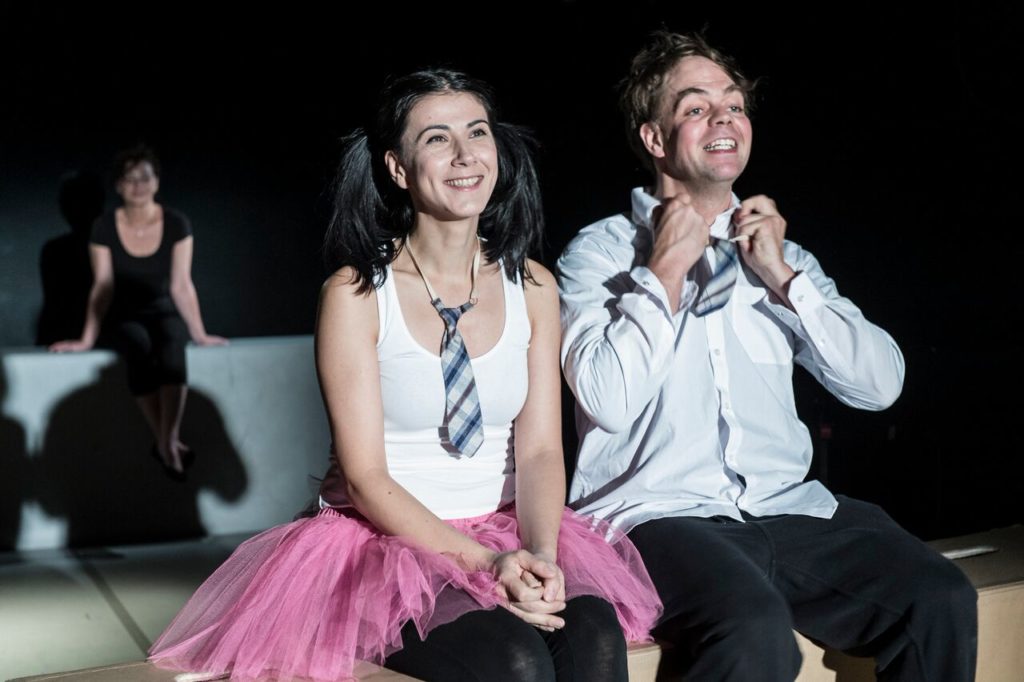
Strawberry Orphans Photo Credit: Volker Beinhorn
Werkgruppe 2 is a collective of theatre artists born in the late 1970s. Founded in 2006, the team consists of Julia Roesler (director), lnsa Rudolph (music), and Silke Merzhäuser (dramaturg). Werkgruppe2 has been an independent interdisciplinary theatre collective based in Lower Saxony, Germany. They have focused on full-length documentary plays since 2009.
Romanian essayist Lia Boangiu, who was asked to reflect on Strawberry Orphans for the project website, explains that the consequences for children when parents leave the country has been discussed so often in Romania that it would be easy to become complacent: “Habit leads to negligence, forgetfulness, and indifference; and the theatre must take on a social role as well, like any of the arts–something that the collaborating artists have fully managed with this show.”
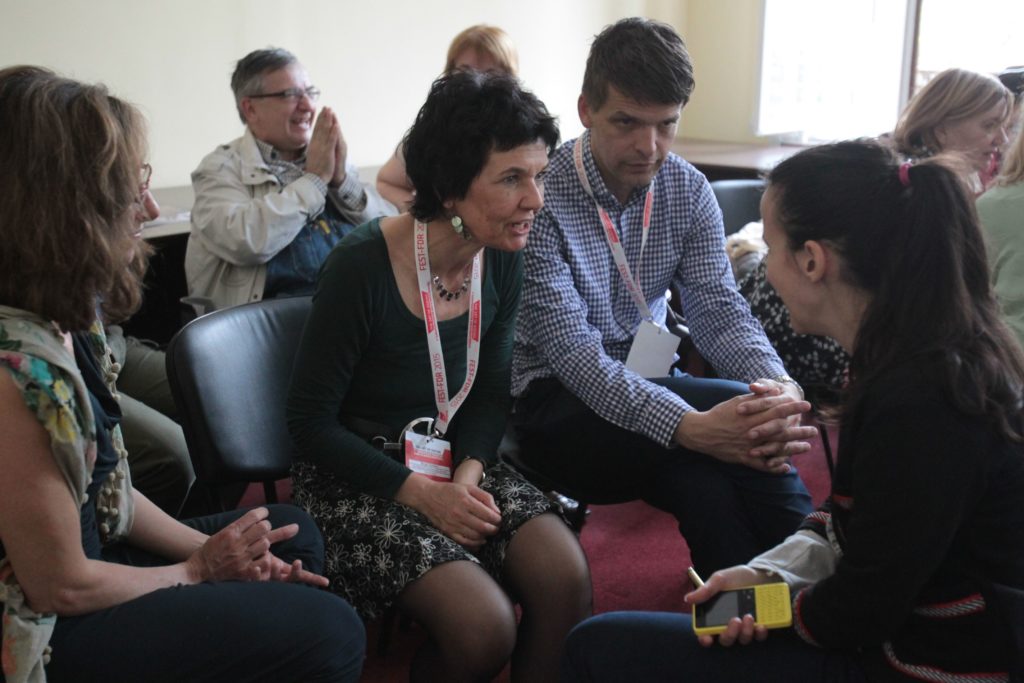
Photo Credit: Adrian Piclisan
The fourth commissioned play is I’m Afraid We Know Each Other Now, a co-production by Theater & Orchester Heidelberg in Germany and City Drama Theatre Gavella in Croatia. The Croatian writer Ivor Martinić conducted research with the German stage director Miriam Horwitz in Zagreb and in Heidelberg on how different generations experience memory. Horwitz explains, “We took a very theoretical approach to finding the topic that best described aging and our view thereof: memory.” They explored both personal and collective identities, the role of memory in the formation of relationships from the nuclear family to politics in the larger community. The script centers on Ivana’s relationship with Filip, which ends because, according to the project website, he is unable to “fulfill Ivana’s desire for a shared narration.” The play was staged in two versions: by a team of artists from Heidelberg and another in Zagreb. Martinic, born in 1984, has written plays that have been translated and produced in more than 10 European countries.
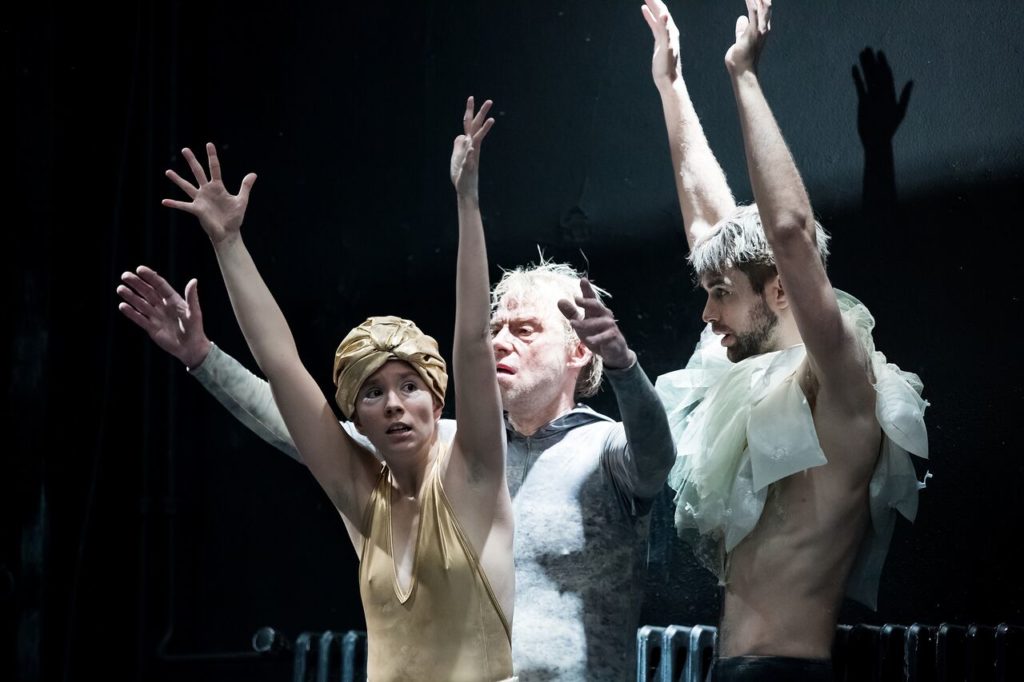
I’m Afraid We Know Each Other Now Photo Credit: Annemone Taake
In addition to the four commissioned works, The Art of Ageing project launched with the premiere of Somewhere At Night, which explicitly examines older ages by focusing on former lovers who meet after a long separation. Playwright Etel Adnan specifies that the characters may be two females, two males, or a woman and a much younger man; director Mathias Hannus responded to the script by using all three combinations in the production. In addition to the play’s running at the State Theatre of Karlsruhe, versions in French and German were performed during the ETC General Assembly at the Theatre de Liege in Belgium. Adnan is a playwright, poet, and painter who was born in Beirut in 1925 and has spent most of her life in Paris. The Art of Ageing was conducted under her “patronage,” according to the website, and she was the only older writer involved.
According to Heidi Wiley of the ETC, the project’s goal was “to stir artistic debates about demographic challenges in our society. Based on international creative research, new plays were commissioned to investigate the theme from political, economic, social, and biological dimensions to raise awareness of the arising challenges.”
As the largest network of public theatres in Europe, the European Theatre Convention has more than forty member theatres from more than twenty countries, reflecting the diversity of Europe’s cultural sector. Founded in 1988, the ETC promotes European theatre as “a vital social platform for dialogue, democracy, and interaction that responds to, reflects and engages with today’s diverse audiences and changing societies.”
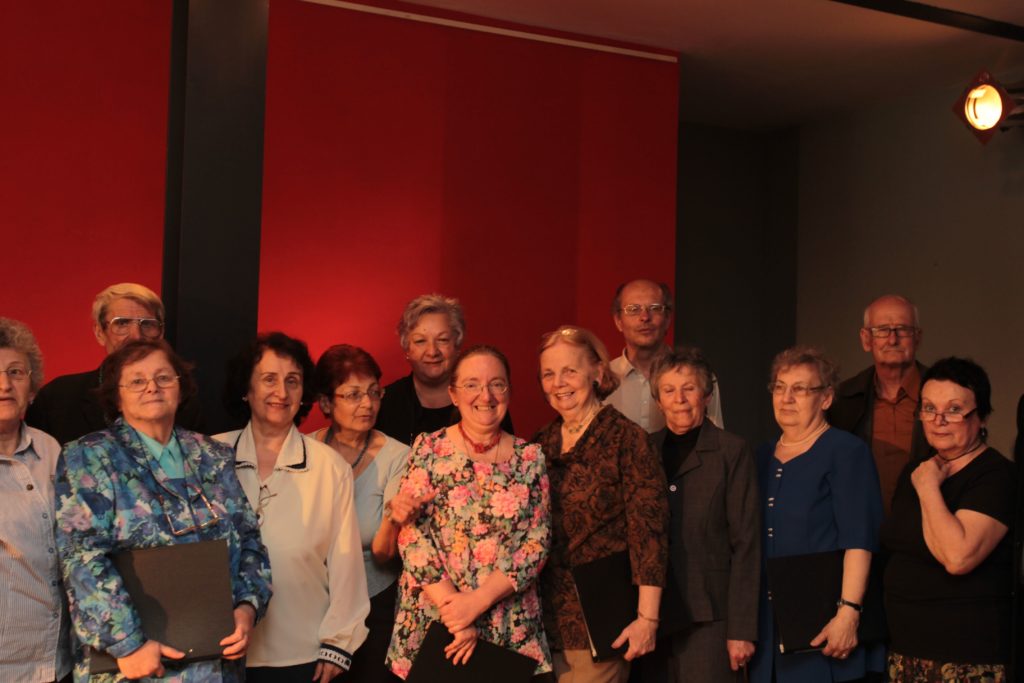
Photo Credit: Adrian Piclisan
This post was written by the author in their personal capacity.The opinions expressed in this article are the author’s own and do not reflect the view of The Theatre Times, their staff or collaborators.
This post was written by Valerie Barnes Lipscomb.
The views expressed here belong to the author and do not necessarily reflect our views and opinions.

